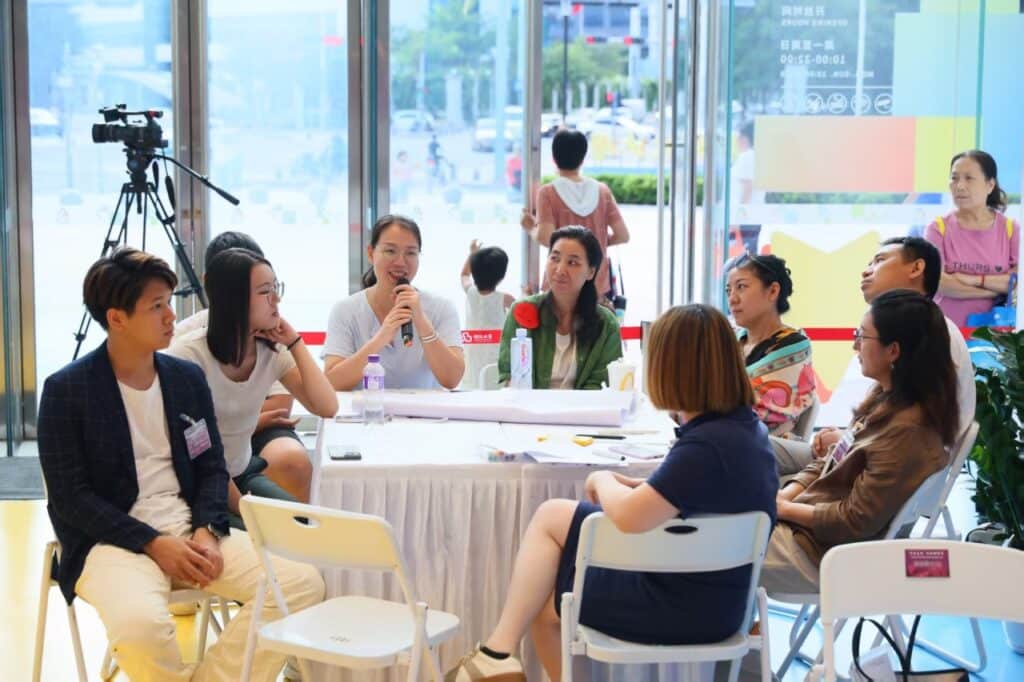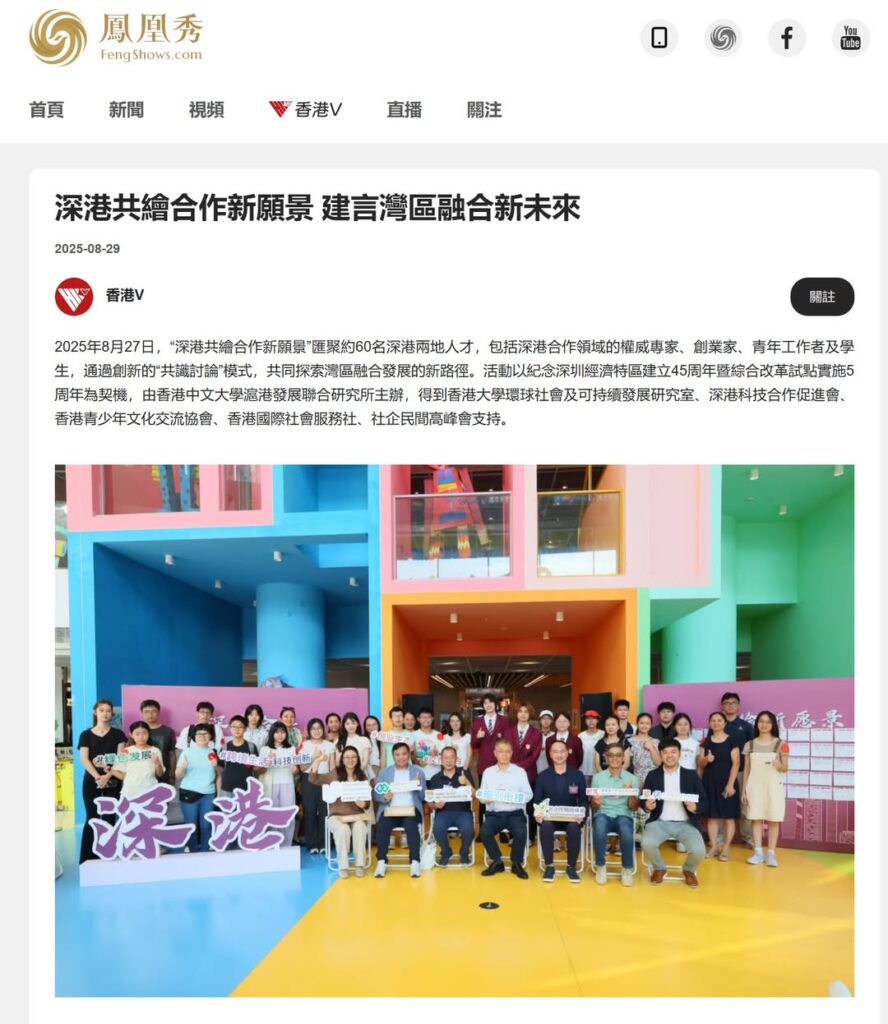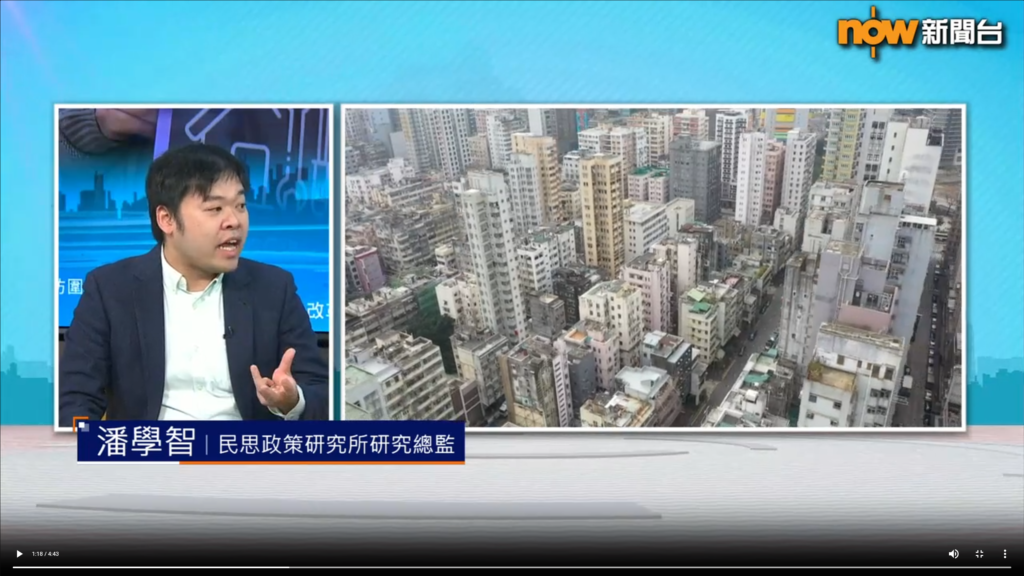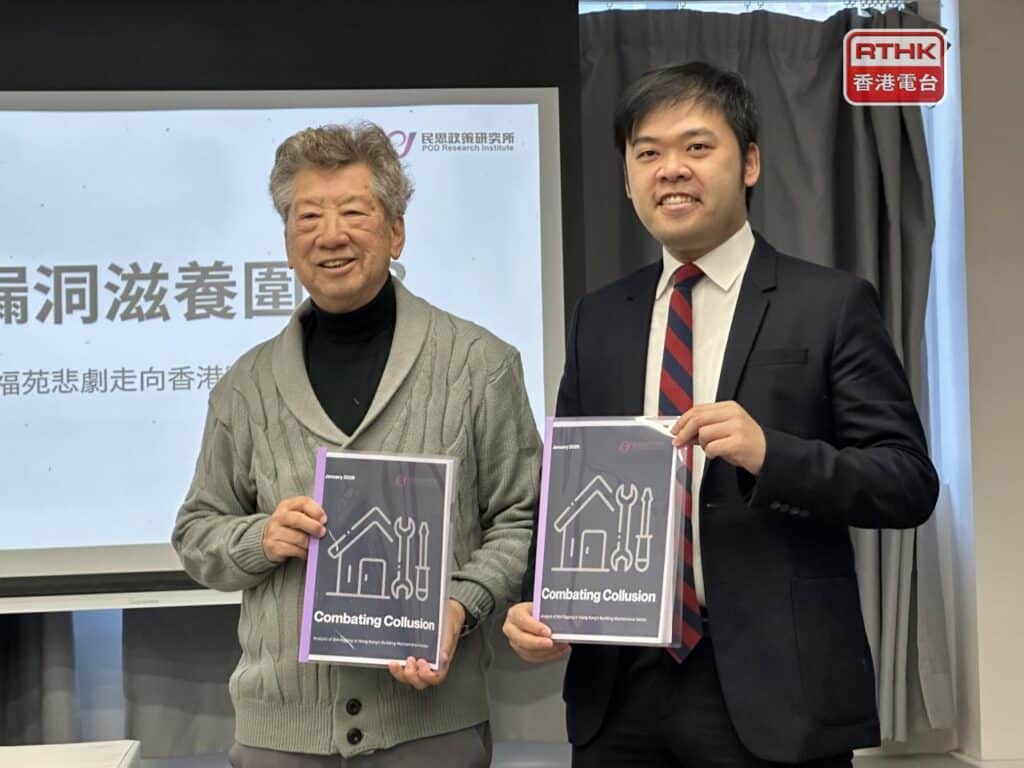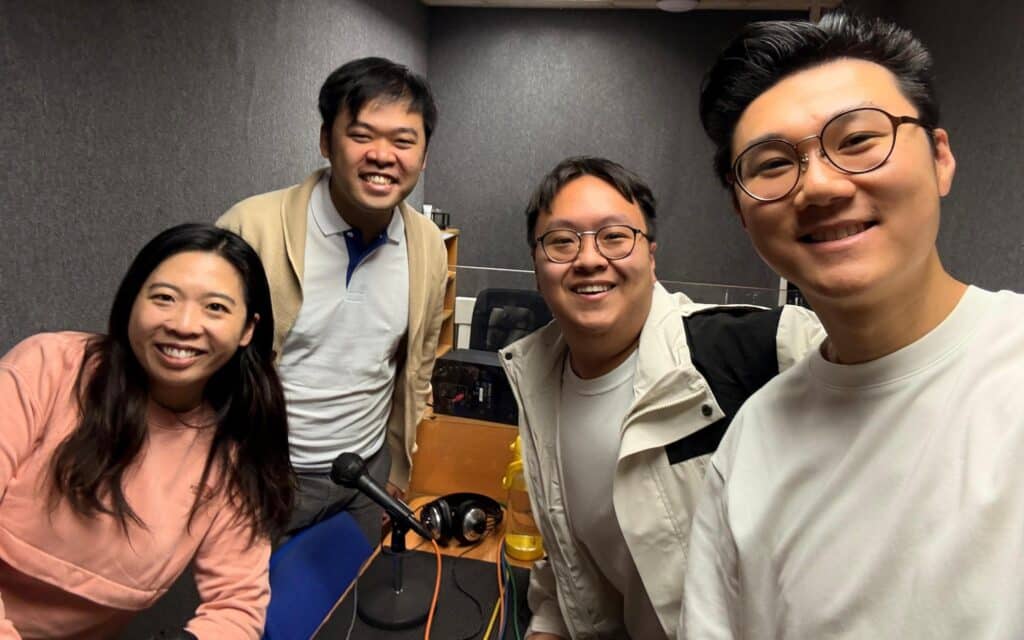On August 27, 2025, the "Shenzhen-Hong Kong Collaboration: A New Vision" event brought together approximately 60 professionals from both Shenzhen and Hong Kong, including leading experts in the field of Shenzhen-Hong Kong cooperation, entrepreneurs, young professionals, and students. Through an innovative "consensus-based discussion" model, they explored new paths for integrated development in the Bay Area. The event, commemorating the 45th anniversary of the establishment of the Shenzhen Special Economic Zone and the fifth anniversary of the implementation of the comprehensive reform pilot program, was hosted by the Shanghai-Hong Kong Joint Institute of Development at the Chinese University of Hong Kong, with support from the Global Society and Sustainable Development Research Office of the University of Hong Kong, the Shenzhen-Hong Kong Science and Technology Cooperation Promotion Association, the Hong Kong Youth Cultural Exchange Association, the Hong Kong International Social Service Society, and the Social Enterprise Summit.
Consensus discussion: from formal participation to substantive co-creation
Pan Xuezhi, Assistant Director of the Shanghai-Hong Kong Joint Institute for Development at the Chinese University of Hong Kong, the organizer of the event, said: "This month marks the 45th anniversary of the establishment of the Shenzhen Special Economic Zone. This city embodies the pioneering spirit of countless young people. I believe that the Shenzhen-Hong Kong cooperation is a platform for youth participation, where young people from Shenzhen and Hong Kong can think, create and act together to jointly shape the future of the two cities."
He further pointed out that the "consensus discussion" model adopted by this event, from topic selection to plan formulation, ensured that every participant was not a bystander but a co-creator. This model, which emphasizes equal dialogue, collective thinking, and joint decision-making, not only improved the quality of participation but also made policy recommendations more aligned with public opinion and more feasible, representing a vivid practice of the concept of "whole-process people's democracy."
Expert guidance: The historical process and future prospects of Shenzhen-Hong Kong integration
Zhang Keke, advisor to the Shenzhen-Hong Kong-Macao Science and Technology Alliance, elaborated on the development history and prospects for integration between the two regions. He described the Hong Kong-Shenzhen Innovation and Technology Park as a vivid embodiment of "one zone, two parks, one country, two systems, and one river, two banks," emphasizing that through mutual learning and joint planning, the two regions are moving towards internationalization as a community. "Collaboration between Shenzhen and Hong Kong is not a simple docking, but a process of mutual empowerment and shared growth. While maintaining their respective unique characteristics, the two regions are breaking through institutional barriers through innovative mechanisms to jointly serve the overall national development."
Ni Yijie, Shenzhen Service Director of International Social Service (Hong Kong), shared the challenges and opportunities facing cross-border families from a micro perspective. She divided the developmental journey of cross-border students into three stages, noting the unique challenges they face at different stages, including adaptation, language, and the pandemic. She also emphasized the need to provide career planning counseling and awareness of institutional differences for cross-border youth. "Cross-border families are both witnesses and drivers of the integration of Shenzhen and Hong Kong, and their needs should be a key consideration in policymaking."
Youth Advice: Focus on Academic and Employment Issues
Based on the experts' sharing, participants discussed two key areas: "Academic Adaptation and Support" and "Career Planning and Integration." They shared their own challenges and proposed innovative solutions. Regarding academics, students highlighted challenges faced by cross-border study, including long and expensive commutes, insufficient time for extracurricular activities and review, and weak bilingual skills (particularly in Cantonese and English). They suggested establishing a cross-border transportation subsidy mechanism and increasing language enhancement courses and academic counseling resources. Regarding employment, they noted concerns about the limited integration of young people from Shenzhen and Hong Kong in the other city and the fragmented nature of career planning resources. They proposed developing an integrated career services platform offering internships, company visits, vocational skills training, and mentoring programs to enhance their employability.
During the event, several experts provided professional commentary on the youth proposals. Zhang Yuge, Director of the Hong Kong, Macao, and Regional Development Research Institute at the China Development Institute (Shenzhen, China), pointed out that Hong Kong's job market is clearly polarized: high-value-added industries offer limited jobs, while low-value-added sectors (such as catering and retail) absorb a large workforce. He further suggested that, given Hong Kong's long-standing commitments on the movement of natural persons under the WTO framework, the Hetao region should leverage its advantages to develop into an innovation corridor for the coordinated development of education, scientific research, and industrialization, creating more high-quality employment opportunities for young people in Shenzhen and Hong Kong.
Huang Weizu, Professor of Professional Practice in the Department of Public and International Affairs at City University of Hong Kong, emphasized that educational collaboration should go beyond the traditional focus on academic performance and place greater emphasis on fostering a positive atmosphere and building a social model. He stated that the in-depth collaboration between Hong Kong universities, technology departments, and businesses is fostering a cross-regional and cross-disciplinary talent development ecosystem, a model that is expected to serve as an important reference for mainland students in choosing their majors and career paths.
Citing personal experience, Leung Chun-kai, Executive Deputy Director of the Global Society and Sustainable Development Research Office at the University of Hong Kong, explained how many students face challenges during interviews and admissions processes, both in Hong Kong and overseas, due to differences in education systems, language barriers, and cultural adaptation. He encouraged the young people present to face potential setbacks with an open and inclusive mindset, emphasizing that these experiences themselves are crucial opportunities for growth and breakthroughs.
Transforming results: Bringing youth voices into decision-making
The "Report on the New Vision of Shenzhen-Hong Kong Youth Cooperation" generated from this event will be submitted to relevant departments, allowing youth voices to truly inform public decision-making. Organizers announced plans to hold a larger-scale event in Hong Kong, inviting even more young people from Shenzhen and Hong Kong to participate. This event not only facilitated discussion but also demonstrated that young people have ideas, are willing to participate, and can contribute. This innovative model of participation provides new insights for the integrated development of Shenzhen and Hong Kong, and sets a new example for youth exchange and cooperation in the Greater Bay Area.
Source:https://www.fengshows.com/article/af0f40c0-8483-11f0-b046-bb761fc628be
